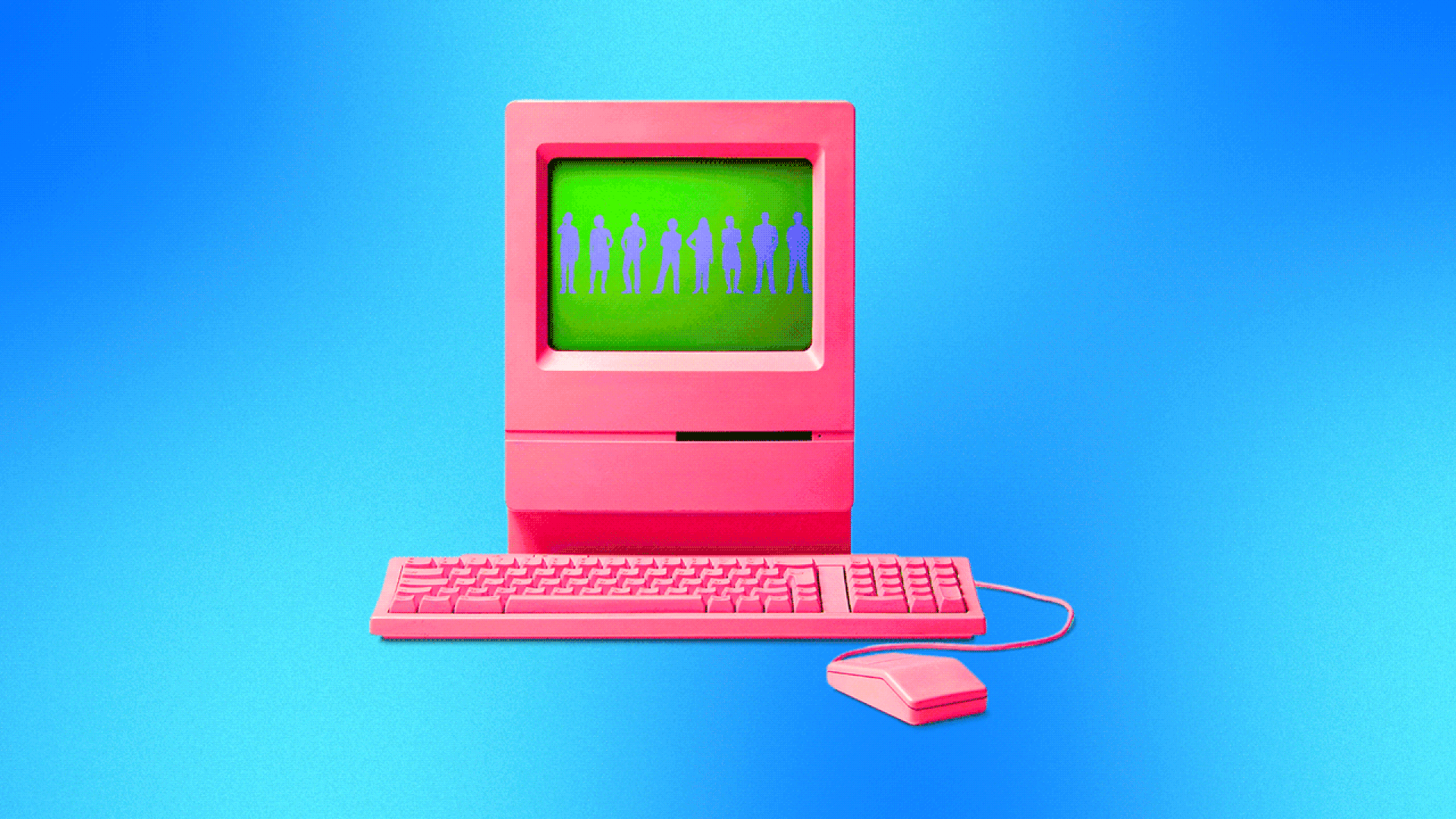
As work on artificial intelligence plods along, an advanced form of crowdsourcing is emerging as an accelerated way to surpass human thinking.
Why it matters: Specially organized groups of people could "get to superhuman intelligence first," said Daniel Weld, a computer science professor at the University of Washington.
Collective intelligence — the knowledge of an organized group, which goes beyond that of any individual member — is already present inside every organization, community, company, and government.
- But anyone who’s ever attended a meeting or followed a controversial bill through Congress knows that hurdles prevent perfect coordination.
- Popular crowdsourcing platforms like Mechanical Turk suffer from accuracy problems, not to mention very difficult working conditions.
More advanced technology can help reduce the friction that holds back better group decision-making.
- An early standout: Foldit, a scientific inquiry masquerading as a video game. A UW team released the web game, in which players experiment with and fold virtual proteins, in 2008. Tens of thousands participated and within ten days discovered the structure of a key enzyme that helps HIV replicate.
- AI can go further to helping synthesize the deluge of answers that come from large groups, said Stefaan Verhulst, co-founder of New York University’s Governance Lab.
Now, a platform built by a company called Unanimous surpasses both expert forecasts and purely AI-generated predictions in sports and Oscar betting.
- The system, called Swarm AI, arranges potential answers on a computer screen. Players pull a bubble toward their preferred option, using a light or hard touch based on their confidence. An algorithm mediates the aggregate force used by the players, settling on an answer.
- This model outperforms traditional voting systems, said Unanimous CEO Louis Rosenberg, because it maximizes what he calls "collective confidence": the answer that the group as a whole most strongly feels is accurate.
In a recent experiment with the Stanford University School of Medicine, eight expert radiologists assessed whether 50 chest x-rays show signs of pneumonia.
- The group’s predictions, moderated by Swarm AI, were 33% more accurate than the individuals on their own, and 22% better than Stanford’s own AI system, CheXNet.
- Matthew Lungren, a Stanford radiology professor who was involved in the study, called Swarm AI a "very powerful tool," but said it should be reserved for difficult decision-making, because it’s too cumbersome to use on every easy case.
"This is an example of how new technology allows democracy to work better," said Thomas Malone, director of MIT’s Center for Collective Intelligence — meaning any democratic decision-making....
- The system allows for instant, anonymous sharing of each participant's opinion, and a continually repeated

